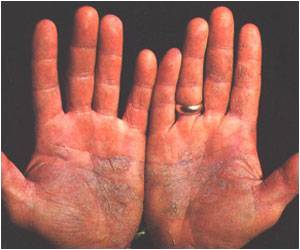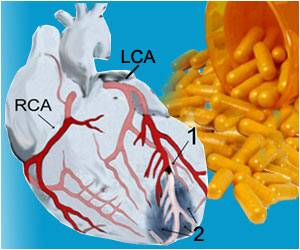Macrophages are known for their Pac Man-like ability to gobble up pathogens and cellular debris in order to thwart infection.

Neutrophils are "first responders" that are attracted to wounds by signaling molecules called reactive oxygen species (ROS) that activate a protein kinase. When neutrophils finish their work, inflammation is partly resolved through apoptosis, or cell suicide, and the subsequent engulfment of the neutrophils' remains by macrophages. But neutrophils can also elect to leave wounded tissue in a process known as reverse migration. Whether macrophages promote this mode of inflammation resolution is unclear.
Taking advantage of transparent zebrafish larvae, Anna Huttenlocher and colleagues from the University of Wisconsin-Madison found that neutrophils were generally recruited to wounds before macrophages, but, once they arrived, macrophages often contacted neutrophils and appeared to shepherd them away from the damaged tissue. Neutrophils remained in wounds for longer times in zebrafish larvae lacking macrophages, the researchers discovered. Like neutrophils, macrophages were attracted to wounds by ROS and protein kinase signaling, and macrophages lacking the ROS-generating enzyme Nox2 were unable to migrate into wounds and induce the departure of neutrophils.
Interestingly, patients lacking the human equivalent of Nox2 suffer from recurring infections and exaggerated inflammation, a disorder known as chronic granulomatous disease. This new study suggests that one cause of the patients' symptoms may be the inability of macrophages to migrate to sites of inflammation to induce neutrophil reverse migration and inflammation resolution.
Source-Eurekalert
 MEDINDIA
MEDINDIA




 Email
Email








